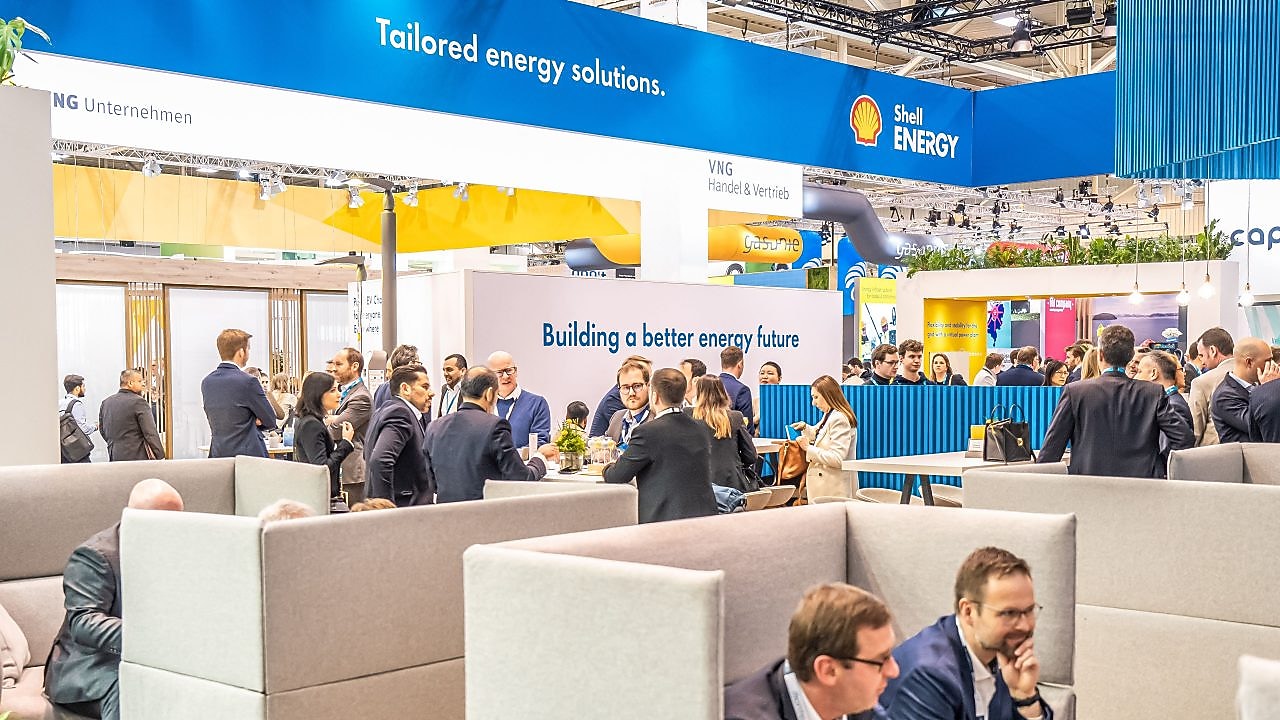
Insight: UK battery deal helps Shell provide greater power supply flexibility
In a move that underscores the growing importance of flexible storage in optimising renewable power supplies, Shell Energy Europe Limited has agreed a seven-year battery tolling deal with BW ESS and Penso Power. The agreement for the Bramley Battery Energy Storage System (BESS) will further enhance Shell’s electricity supply and demand management capabilities and support the UK’s ongoing energy transition.
The 100-megawatt (MW), 330-megawatt hour (MWh) Bramley site, currently under construction in Hampshire, southern England, is expected to be the longest-duration BESS in the UK when it is commissioned in late 2024.
“The Bramley battery system is one of the most sophisticated longer-duration assets under construction in the UK and will provide us with unmatched capabilities for portfolio optimisation,” Rupen Tanna, Head of Power and Systematic Trading at Shell Energy Europe, said.
“Tolls have been a feature of conventional energy trading for many years. By extending the business model to battery storage, Shell has the trading experience to add significant value, while supporting the UK’s ongoing energy transition. The experience gained through these early tolling contracts will be invaluable to the wider market.”
The Bramley BESS agreement will enable Shell to store electricity at times of relatively low demand, for example overnight when supply of wind power could be too high, and deliver it when it is most needed, an energy management technique known as load shifting.
Battery storage systems have a key role to play in scaling up renewables in the power system and delivering secure and sustainable energy, according to the International Energy Agency, but deployment needs to scale up significantly between now and the end of the decade to enable the world to meet its energy and climate goals.
In the UK, the pipeline of battery storage projects has increased by around two-thirds in capacity over the past year, from 57.1 gigawatts to 95.6 gigawatts, says trade association RenewablesUK, with the average size of individual battery storage projects increasing.
The tolling agreement at Bramley follows a multiyear offtake agreement that Shell signed in early 2020 for Shell to trade all of the power from the Minety project in south-west England, a 100 MW storage facility developed by Penso Power. Shell also provides dispatch trading and optimisation for the 100 MW Richborough Battery Energy Park, owned by Sosteneo Energy Transition Fund.
The fixed-price battery tolling agreement also provides Penso Power and BW ESS with revenue certainty, an important factor in the financial viability of large-scale renewable energy storage projects.
"This tolling agreement demonstrates the attractiveness of longer-duration battery systems and helps enable the market’s transition from short-term frequency response towards load shifting,” said Erik Strømsø, CEO of BW ESS.
Richard Thwaites, CEO at Penso Power, says this latest agreement represents a shift in how energy storage projects are structured and financed.
“The floor contract we agreed with Shell on our Minety battery storage project back in 2020 became a template for the industry and this tolling agreement for Bramley breaks new ground. It represents a coming of age for the battery energy storage sector.”
Cautionary Note
Cautionary Note
The companies in which Shell plc directly and indirectly owns investments are separate legal entities. In this content “Shell”, “Shell Group” and “Group” are sometimes used for convenience where references are made to Shell plc and its subsidiaries in general. Likewise, the words “we”, “us” and “our” are also used to refer to Shell plc and its subsidiaries in general or to those who work for them. These terms are also used where no useful purpose is served by identifying the particular entity or entities. “Subsidiaries”, “Shell subsidiaries” and “Shell companies” as used in this content refer to entities over which Shell plc either directly or indirectly has control. The term “joint venture”, “joint operations”, “joint arrangements”, and “associates” may also be used to refer to a commercial arrangement in which Shell has a direct or indirect ownership interest with one or more parties. The term “Shell interest” is used for convenience to indicate the direct and/or indirect ownership interest held by Shell in an entity or unincorporated joint arrangement, after exclusion of all third-party interest.
Forward-Looking Statements
This content contains forward-looking statements (within the meaning of the U.S. Private Securities Litigation Reform Act of 1995) concerning the financial condition, results of operations and businesses of Shell. All statements other than statements of historical fact are, or may be deemed to be, forward-looking statements. Forward-looking statements are statements of future expectations that are based on management’s current expectations and assumptions and involve known and unknown risks and uncertainties that could cause actual results, performance or events to differ materially from those expressed or implied in these statements. Forward-looking statements include, among other things, statements concerning the potential exposure of Shell to market risks and statements expressing management’s expectations, beliefs, estimates, forecasts, projections and assumptions. These forward-looking statements are identified by their use of terms and phrases such as “aim”; “ambition”; ‘‘anticipate’’; ‘‘believe’’; “commit”; “commitment”; ‘‘could’’; ‘‘estimate’’; ‘‘expect’’; ‘‘goals’’; ‘‘intend’’; ‘‘may’’; “milestones”; ‘‘objectives’’; ‘‘outlook’’; ‘‘plan’’; ‘‘probably’’; ‘‘project’’; ‘‘risks’’; “schedule”; ‘‘seek’’; ‘‘should’’; ‘‘target’’; ‘‘will’’; “would” and similar terms and phrases. There are a number of factors that could affect the future operations of Shell and could cause those results to differ materially from those expressed in the forward-looking statements included in this content, including (without limitation): (a) price fluctuations in crude oil and natural gas; (b) changes in demand for Shell’s products; (c) currency fluctuations; (d) drilling and production results; (e) reserves estimates; (f) loss of market share and industry competition; (g) environmental and physical risks; (h) risks associated with the identification of suitable potential acquisition properties and targets, and successful negotiation and completion of such transactions; (i) the risk of doing business in developing countries and countries subject to international sanctions; (j) legislative, judicial, fiscal and regulatory developments including regulatory measures addressing climate change; (k) economic and financial market conditions in various countries and regions; (l) political risks, including the risks of expropriation and renegotiation of the terms of contracts with governmental entities, delays or advancements in the approval of projects and delays in the reimbursement for shared costs; (m) risks associated with the impact of pandemics, such as the COVID-19 (coronavirus) outbreak, regional conflicts, such as the Russia-Ukraine war, and a significant cybersecurity breach; and (n) changes in trading conditions. No assurance is provided that future dividend payments will match or exceed previous dividend payments. All forward-looking statements contained in this content are expressly qualified in their entirety by the cautionary statements contained or referred to in this section. Readers should not place undue reliance on forward-looking statements. Additional risk factors that may affect future results are contained in Shell plc’s Form 20-F for the year ended December 31, 2023 (available at www.shell.com/investors/news-and-filings/sec-filings.html and www.sec.gov). These risk factors also expressly qualify all forward-looking statements contained in this content and should be considered by the reader. Each forward-looking statement speaks only as of the date of this content, 07 August 2024. Neither Shell plc nor any of its subsidiaries undertake any obligation to publicly update or revise any forward-looking statement as a result of new information, future events or other information. In light of these risks, results could differ materially from those stated, implied or inferred from the forward-looking statements contained in this content.
Shell’s Net Carbon Intensity
Also, in this content we may refer to Shell’s “Net Carbon Intensity” (NCI), which includes Shell’s carbon emissions from the production of our energy products, our suppliers’ carbon emissions in supplying energy for that production and our customers’ carbon emissions associated with their use of the energy products we sell. Shell’s NCI also includes the emissions associated with the production and use of energy products produced by others which Shell purchases for resale. Shell only controls its own emissions. The use of the terms Shell’s “Net Carbon Intensity” or NCI are for convenience only and not intended to suggest these emissions are those of Shell plc or its subsidiaries.
Shell’s net-zero emissions target
Shell’s operating plan, outlook and budgets are forecasted for a ten-year period and are updated every year. They reflect the current economic environment and what we can reasonably expect to see over the next ten years. Accordingly, they reflect our Scope 1, Scope 2 and NCI targets over the next ten years. However, Shell’s operating plans cannot reflect our 2050 net-zero emissions target, as this target is currently outside our planning period. In the future, as society moves towards net-zero emissions, we expect Shell’s operating plans to reflect this movement. However, if society is not net zero in 2050, as of today, there would be significant risk that Shell may not meet this target.
Forward-Looking non-GAAP measures
This content may contain certain forward-looking non-GAAP measures such as cash capital expenditure and divestments. We are unable to provide a reconciliation of these forward-looking non-GAAP measures to the most comparable GAAP financial measures because certain information needed to reconcile those non-GAAP measures to the most comparable GAAP financial measures is dependent on future events some of which are outside the control of Shell, such as oil and gas prices, interest rates and exchange rates. Moreover, estimating such GAAP measures with the required precision necessary to provide a meaningful reconciliation is extremely difficult and could not be accomplished without unreasonable effort. Non-GAAP measures in respect of future periods which cannot be reconciled to the most comparable GAAP financial measure are calculated in a manner which is consistent with the accounting policies applied in Shell plc’s consolidated financial statements
The contents of websites referred to in this content do not form part of this content.
We may have used certain terms, such as resources, in this content that the United States Securities and Exchange Commission (SEC) strictly prohibits us from including in our filings with the SEC. Investors are urged to consider closely the disclosure in our Form 20-F, File No 1-32575, available on the SEC website www.sec.gov.

